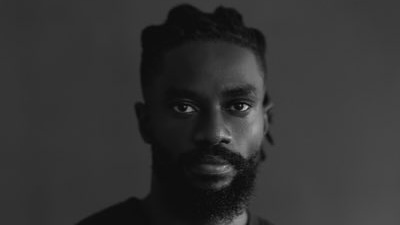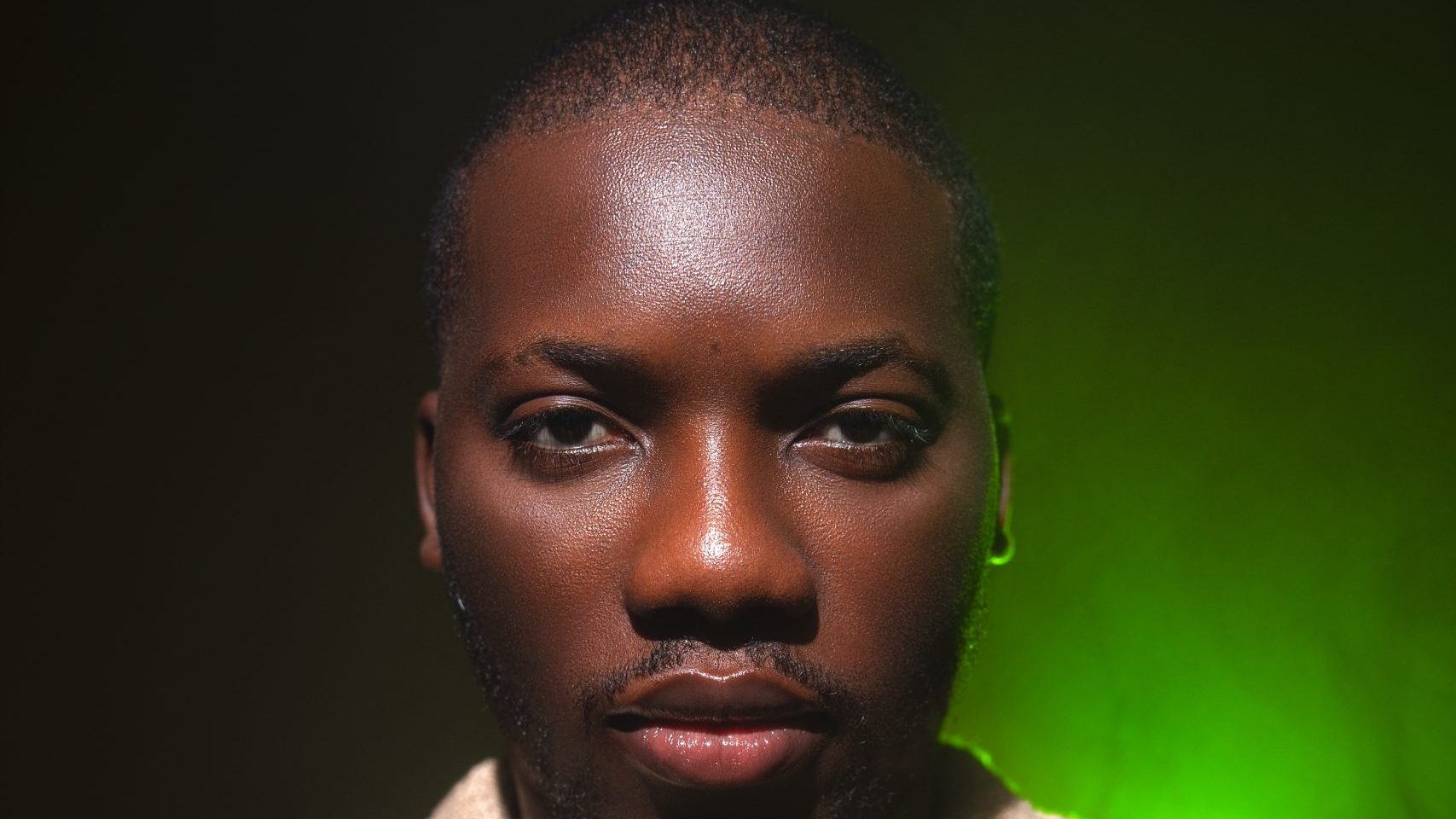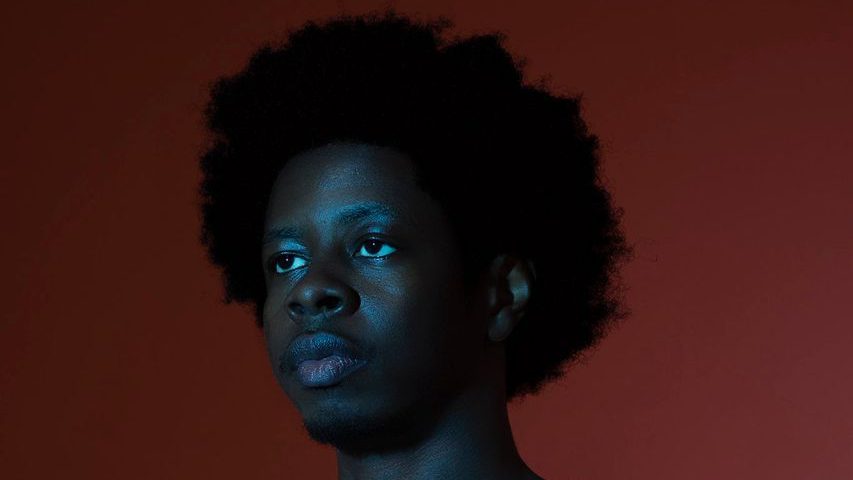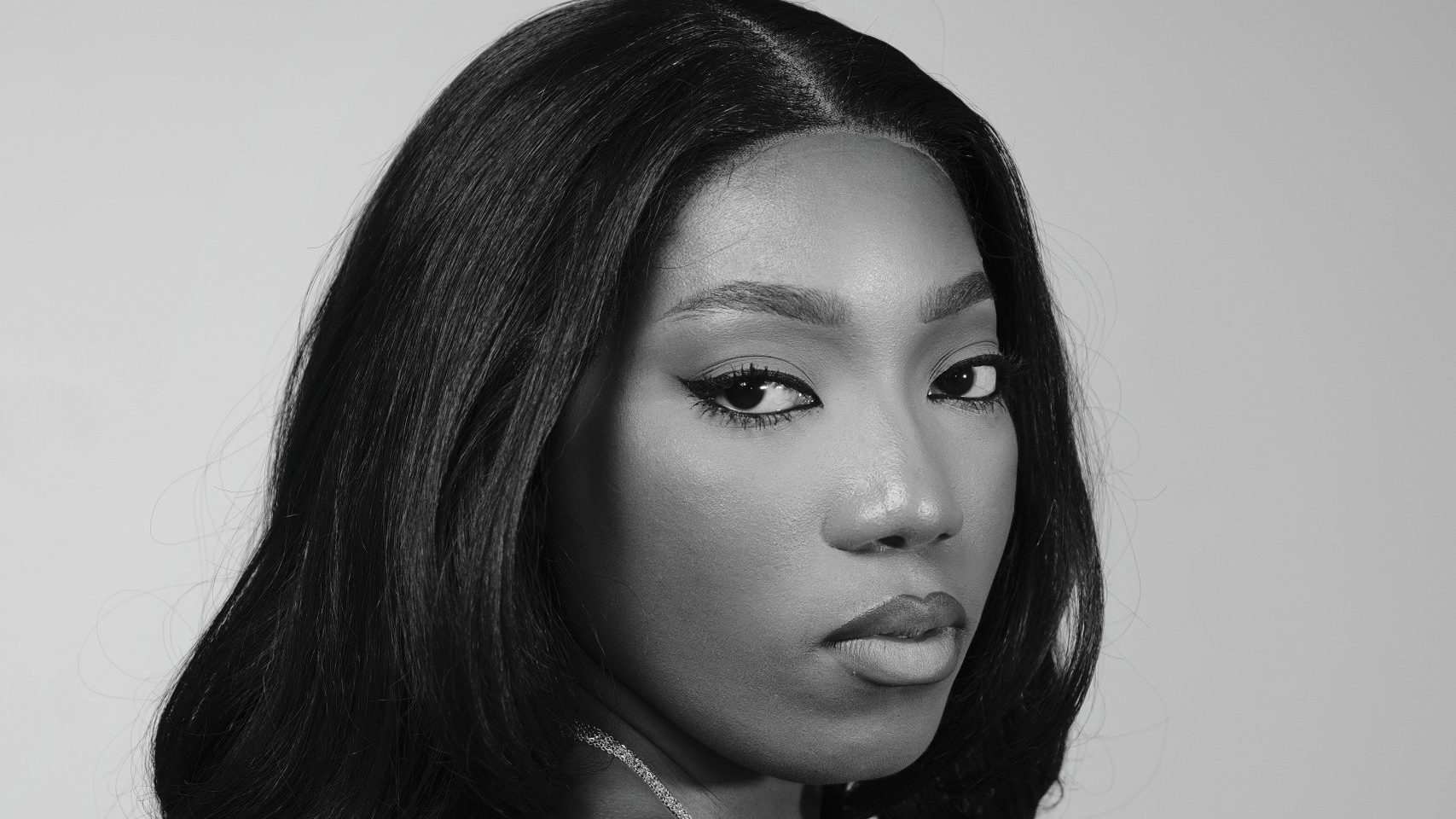Kehinde Alabi, better known as Louddaaa, has made a name for himself as a producer in the Nigerian music industry over the past four years. In early April, we caught up with him to discuss practically everything: his introduction to music, transition from sound engineer to producer, working with Ayra Starr and Davido, creating movie soundtracks, and the birth of the iconic “LOUDDAAA!” tag. Here’s what he shared with us:
Hi Louddaaa. How’s the day going? Are you in the studio?
Not bad, just the same as every day. No, I’m home. I’m usually home, I have a mini set-up in the house where I work from.
Do you want to give us any tea as to what you’re working on at the moment?
I’m just finishing songs. Nothing serious, just finishing songs with some artists.
Let’s talk about your entry into music production and music in general. What’s your background, and what led you into music production in particular?
I was one of those kids who would play drums with everything they found. I started playing drums when I was 9 or 10 and did that for almost 10 years, with other instruments like the keyboard, guitar, and bass. But even before I knew what it was called, God told me I’d be a producer, the person behind the songs I heard on the radio. I started actually producing in university after my roommate, Raphael, lent me his laptop with beat-making software.
I also learnt sound engineering. I did it exclusively during my NYSC year and didn’t produce at all. After that, I tried to return to it but felt like I’d lost the spark. I thought it was God saying bye-bye to production, and I began looking for jobs as an engineer. After several rejections, I eventually got hired by Mavin Records.
At Mavin, I was officially brought on as a sound and recording engineer, not a producer, and I was very happy doing that job. I told myself I was going to be the best engineer in this country. But I always stayed back after sessions to make beats, not with any artist in mind, just to pass the time. One night, Don Jazzy heard one of those beats and suggested we try Ayra Starr on it. She recorded it the next day and liked it so much she kept coming back with new ideas. Before I knew it, we had multiple songs together, and by the time her EP dropped, I had three tracks on it. That was the introduction to the LOUDDAAA that everybody knows now.
Yeah, that sounds very inspiring. I feel like you would attribute your getting back into production to being able to practice without pressure. But personally, what would you say brought you back into music production?
Firstly, I would like to say it was God. Because it wasn’t something that I was intentionally working towards, God just found a way to put me back on track. But then I would say what really helped, like you mentioned, was that there was no pressure. I wasn’t making beats because I wanted an artist to jump on it. I was able to just create, based on how I was feeling.
One more thing that also influenced me was that I was surrounded by lots of amazing producers, and I was watching them work, as the engineer in the session. After every session, I’d go back and put some things together. I would also ask questions, I remember always asking Ozedikus and London questions, not because I wanted to start producing. I was just curious to know what they were doing. So yes, being in that environment also added to the spark.
If you were to describe your style as a producer, what would that look like for you?
I won an award for AfroSoul Producer of the Year at The Beatz Awards in 2023, and I was nominated in the same category last year, too. So I’d say that my sound was given that name. But for me, I would say that my sound is very heavy on feeling. It’s a touch of everything, but with a blend of soul. I think the most important thing in my sound is the soul that comes with it. So while I do any genre, it just has to sound soulful. You have to feel something.
Where would you say that soul comes from? What experience or what part of you makes you tilt towards adding soulful sounds to what you make?
My experiences in life have influenced what my production sounds like. So for every beat that I work on, I go back to something that I’ve experienced in the past. The only way I know that I’m done with a song is when I start feeling something.
What was the process of creating “Away” with Ayra Starr like?
So one night, past midnight, she sent me an idea and asked if I could make a beat to it. She sent a voice note singing the hook of the song as it is now. I made two beats that night, and I think she picked the second one. We met a few days after, recorded, and it became what it is. It was a very quick beat, because she texted me by 1 a.m., and then by 3 or 4 a.m., I was done. I used to collect beats from different producers as her engineer, but this time that she asked me to cook something, I absolutely had to deliver.
If you were to mention five songs produced by you that everyone should listen to, like a LOUDDAAA essentials list, what would those five songs be?
The first one is “Orun” on Ayra’s The Year I Turned 21 album. It’s very special because it came from somewhere very deep. Secondly, I would say, “Away”. It was the second song I did with Ayra, and I made that song not knowing the gravity of what I had done. I didn’t understand how powerful that song was. I didn’t understand all the elements that I put together to make that song until it came out, and it did what it did. So that song is very special to me, because that was the song that put me out there, and it was the first song that I specifically created for Ayra.
The third one I would say, “Beggie Beggie”, also by Ayra Starr. That song is also very unique, it was a song that we created from a space where I was just experimenting. The fourth song, I would say “Alafia” by Simi. That song is soulful, the combination between Simi and Bella Shmurda is just very unique. I did some things in that song that a lot of people would not understand. It sounded very simple, but then there were a lot of technical things that went into it behind the scenes. There was a part where I had to convert my vocals to trumpet, at the interlude before Bella Shmurda’s part.
Last one, I would say, “So It Goes” by Black Sherif and Fireboy DML. Yes, that song is magical. That’s all I can say about the song.
Thank you for sharing your five. We didn’t get anything off 5IVE (Davido’s album), though. Are there any records that you think will make the list when they drop?
There are some songs that have not been announced yet, so I don’t know if I want to talk about them yet. But yeah, I mean, the ones with David have been announced. I think “10 Kilo” would definitely come on it. It can’t be my number one, though, maybe number two. It was specifically made for Davido. I made the song with my friend Dayo Grey, and I remember I was like, “how far let’s do a Davido classic? Let’s take Davido back a bit.” We were very intentional with that song, and I’m glad that David liked it, and he felt what we felt while we were making the song. After he recorded, it just made more sense.
How was it working with Davido? How did that come about, and what was the process like?
Davido and I met for the first time a few days ago. While he was making the album, we never saw each other, it was phone conversations via WhatsApp. I made a beat, put some ideas on it with my writers, then sent it to Davido’s manager. David liked it and followed me on Instagram. Then, we started talking on WhatsApp. When I heard what he recorded, I was like, “Blood of Jesus. Wow.” It sounded magical. But while he was doing that, I was already cooking the next song, with my guy too. I sent it to him. David was like, “Guy, you’re going to kill me with songs o. What’s happening?” He liked it, recorded and sent it back. While he was doing that, I was already cooking the third one too. It was like a week of back to back to back. We were just sending each other ideas, and David was very prompt at recording. Before we knew it, we had recorded several songs without even seeing each other. And, yeah, we saw each other for the first time a few days ago, and it was magical.
I really can’t wait to hear everything you guys cooked on 5ive. Are there any songs produced by other people that you wish you had produced?
Wow, a lot of songs. I’ve been listening to “Iseoluwa” by Fireboy lately. I like the song, and sometimes I wish I produced it, because of how the song makes me feel. I’m very heavy on feeling. Once the song sounds right or feels right, I’m just attached.
I would also say “Essence” by Wizkid and Tems. The production is magical. I mean, everybody knows what that song did. Lastly, probably every record by Jon Bellion. Jon Bellion influenced my music and my sound a lot. Let’s just keep it there because if I start listing songs, we will not leave here.
We see a lot of artists and producer duos. If you could lock in with one artist, who would that artist be?
If I were to lock in with an artist forever, it has to be an artist who is not afraid to experiment, push boundaries and understand that music is more than sound; it’s a feeling. If I have to mention one person, that’s going to be hard, because I’ve had different synergy with different artists. I would say Ayra, like, obviously, everybody would expect. I think Ayra is one person with whom I’ve had this synergy for a very long time. So I would give it to Ayra.
What’s the most meaningful piece of advice you’ve received, as someone in the music industry and particularly as a producer?
To be honest, there’s a lot, but the one that has stayed with me for a while would be “never let the industry define you.” That’s one thing that is driving me in particular, because I also understand that life itself is a moment. I don’t know how long I’m going to be here for. I just want to give the little that I can give, so when I leave, you can say, Louddaaa brought this sound, or this person or this artist.
As a producer, let me pick two. I would say as simple as believing in yourself sounds, there’s a lot of power in it. Secondly, I would say that production isn’t just about making beats, it’s about understanding emotion and translating feelings into sound. You should know when to give space to an artist. Sometimes silence is more powerful than any instrument. This really played out in my life when I was making ‘Woman To Woman’ with Simi. My first interpretation was me trying to show off as a producer but it wasn’t sitting properly with me. It just felt like the emotion was missing and my instrumental was competing with her vocals. I reached out to one of my mentors who had worked with Simi in the past, and he told me this thing I just said about putting the emotions into consideration. It helped me carve that song in a way that gave her voice space to breathe, bringing out the emotions in the song.
What’s one thing emerging producers should know that is not popularly spoken about?
Firstly, before diving into the technical side of music, I would say patience. Nobody really tells you how long the journey can be. I understand that everybody wants to blow but we don’t know when it is going to happen. You might have to work in the shadows for years before you get that one break again. In that time, you should be building your sound, your identity and resilience. One of the quotes that has kept me going for a long time is “it doesn’t happen overnight, but when it happens, it happens overnight.” Secondly, for the technical part, I would say that, as a producer, learn how to mix. If you can learn how to learn how to engineer, it would do a lot for you. If you understand the basics of it properly, you’ll be able to design your own sound. It is one thing to have an idea. It’s another thing to be able to bring that idea to life.
You were nominated for the AMVCAs in the new category for “Best Score”. How did you get into the film industry? Are you looking to do more scores and soundtracks?
It’s a space that I’ve been involved in in the past. I studied industrial design in school, andor my final year project at University, I did the Foley, sound design and music for an animation movie, titled “Eze goes to school.” It was an animated adaptation of the popular storybook book and I did everything regarding music for that. So when my friend reached out to me and said, he’s working on a movie, and I was like, “give it to me, bro, I love it.” In that period, I remember working on other movies, including “Finding Messiah”, that had the soundtrack trending on Instagram. I was privileged to be part of that project. When the nomination happened, to be honest, I was surprised, because I didn’t know that it was going to come out that big or was going to get nominated. It felt good, to be honest, it felt good. And it just gave me that ginger. I think I’m in the right space. And this is looking like something that can definitely get bigger from here.
What does success look like for you?
For me, success feels different. Success is knowing that my work moves people. It’s seeing an artist grow because of something that I created. Success for me is fulfilling purpose and making a stand. It’s contributing my 1% to the music industry. Doing what I love without losing myself in the process. Doing that thing that God has called me to on earth before I leave.
What can we expect from you next?
Obviously, I’m working on some projects with some artists that’ll be out soon. But if you know me very well, I love up-and-coming artists a lot. I love to develop artists and to help them create that sound that is very unique to them. I love to help new artists in general, and I’m working on a project that I think would benefit them. You will know about it soon. More amazing things from Louddaa are coming, fingers crossed.
I just remembered that you made one of my favourite songs from Priest, “Family”. I almost forgot to ask this one, but your tag is pretty interesting. What was the inspiration for the name, “LOUDDAAA”?
So, we sound engineers don’t like our volumes to be very loud. We like it very low. So whenever I’m working on any song, I like my speakers very low so that my ear doesn’t get fatigued too quickly, which is the opposite for artists and music executives. They like the speakers banging, and their headphones very loud and bleeding. Whenever I’m working with any artist, my speakers and headphones are usually very low, so they’ll be like, “Kenny, can you make my headphones louder?” “Kenny, can you make the speaker louder?” So every time they call, I know what they want, I just say, “louder, right?”.
When the transition happened and I started producing, they asked me what I wanted to be called as a producer. I just said “Louddaaa” because that’s already what they call me. That was how that happened. I was in the room with DJ Big N when we had this conversation, and immediately I said it, he picked up the mic and said, “LOUDDAAA!”. That’s the sound you hear on my tag now.
